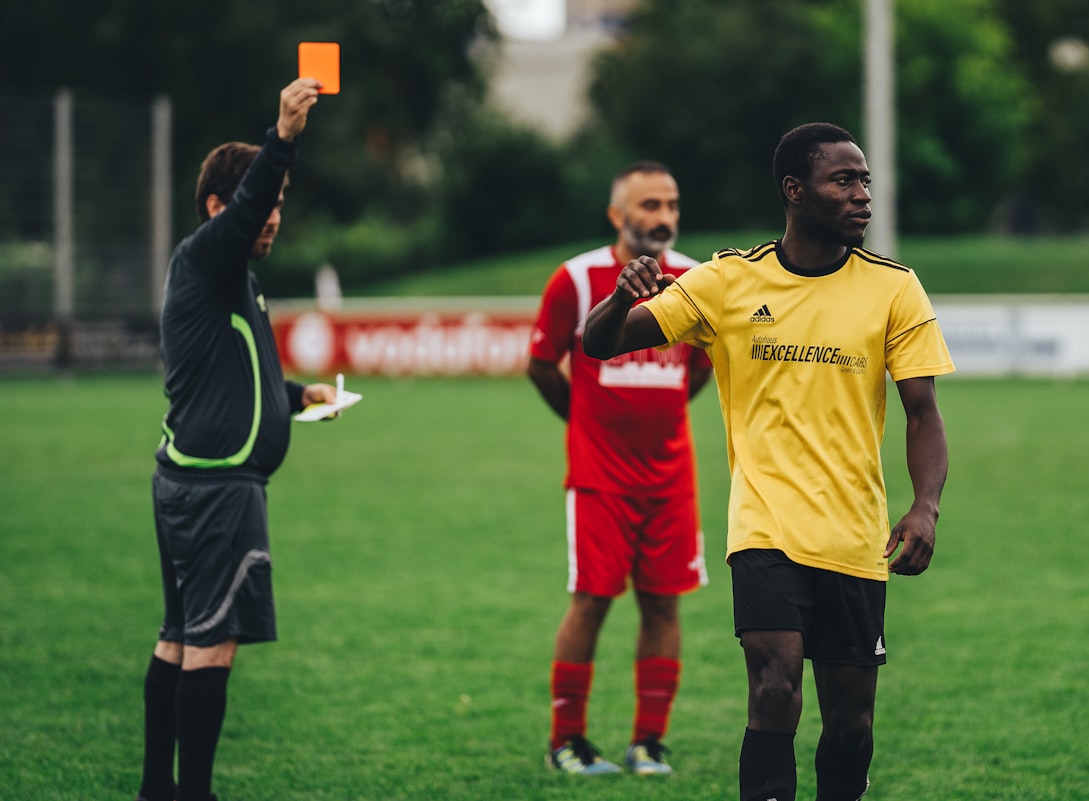Transitioning from high school soccer to college-level play requires significant skill and competitiveness. Only a small fraction of youth players make it to Division 3 college soccer teams. College soccer requires a professional mindset, seriousness, and focus in both training and matches. Match durations also change, from 80 minutes in high school to 90 minutes in NCAA contests.
College soccer can be played without prior experience, but it's important to avoid limiting options and explore various options for a successful soccer career in college.
NCAA college soccer attracts 45,000 players, which is only 6% of high school players. Scholarship opportunities vary across college soccer divisions and genders, with Division 1 teams offering nine scholarships. This article offers more insights into this topic, so you should read it if you're interested in applying.
Should You Apply To A Soccer College?
First things first, answer this question: are you ready to play at the next level? Get advice from trusted sources and evaluate your own skills honestly. It isn’t just about soccer skills; consider the academic and social fit of the school too. You also need to know how to write an essay for admission. If I had known that this type of essay can differ from regular school papers we are used to, I would have immediately chosen a service to write my paper without any problems.
Consider if you prefer competing for playtime at a Division 1 program or getting more minutes at a Division 3 school. Wondering about soccer scholarships? In this case, you must to take care of your visibility and recognition. Play for a respected club or high school team. However, there are other ways to improve your skills, like attending soccer camps and gaining a network with coaches, especially at schools you're interested in.
Contact college soccer coaches to introduce yourself and express your interest in their programs. Let them know about your skills, rankings, and grades. The more coaches you contact and demonstrate skills, the more options you'll have.
Good grades matter, too. They make schools more likely to recruit you and can lead to non-soccer financial aid, which is vital at some schools, like Ivy League and Division 3 schools.
Soccer College Recruiting Peculiarities
These are a few technical terms to consider before choosing a soccer college:
-
soccer prospects;
-
recruits;
-
commits.
A prospect is a person eligible to play, regardless of skill. A recruit is someone a recruiter has shown interest in. And a commit is someone who's agreed to play, often by signing a Letter of Intent.
Why does it matter to you? Well, coaches can't approach you, but they can answer your calls. Thus, use this as an opportunity to contact coaches because that's how recruiting works — you're the one to call people.
Men's And Women's Soccer Differences
When it comes to college soccer, the rules are the same for both men and women. Matches have the same duration, and substitution rules are the same. However, there are some differences, especially regarding scholarships. While Division 3, NAIA, and junior college soccer have the same limits, Division 2 and Division 1 have variations between men's and women's scholarships:
-
9 for male students and 9.9 for female students;
-
14 for female students and 9.9 for male students accordingly.
What do coaches seek in recruits? While details may vary, there are common traits they look for in both men's and women's players. You must also keep in mind that some colleges only have men's or women's teams. This gap is especially obvious in Division 1, where more schools have women's teams than men's.
Rankings And Statistics
If you're determined to apply, you should stay updated on the performance and rankings of the teams you're interested in. It's the first “filter” that helps you decide if these teams are for you, and you'll feel comfortable playing for them. In that case, you may even contact NCAA coaches to learn about their recent performances.
National and regional polls rank college soccer teams on all levels. Check out the RPI (Rating Percentage Index) for Division 1 colleges. It's a system that evaluates teams on a national scale according to their performance. While statistics can be helpful, keep in mind that such data may not always offer a complete picture due to varying schedules, weather conditions, player injuries, and so on.
Stats reflect a team's performance and frequently influence their eligibility for postseason tournaments. Conference champions usually secure automatic entry into postseason tournaments.
Rankings can fluctuate due to teams' performance variations and new emerging talents, regarding the top soccer colleges. Historically, Indiana University, the University of Virginia, and the University of Maryland have excelled in men's soccer, with notable achievements in national competitions. On the women's side, the University of North Carolina has been the most active and successful — it won 21 national championships.
College Tournaments
Typically, at the beginning of each tournament, higher-seeded teams host games in their respective colleges. However, during future rounds, these games will be played on neutral territories.
The so-called cherry on top is the College Cup, which is similar to the basketball's Final Four. It consists of four semifinal matches and two championship games broadcast on ESPN.
The number of teams in these tournaments depends mainly on the level of soccer sponsorship. For instance, the Division 1 men's tournament includes 48 teams, while the women's tournament has a total of 64 teams.
Academic Requirements For College Admission
Now, one of the most important parts is the admission requirements for a college application. Suppose you've decided which colleges you'll apply for. What are the requirements apart from the NCAA's minimum academic standards?
First, check out the official website or ask a coach in that college (in case you contacted them). Most colleges have their academic requirements for admission from applicants. Some establishments require higher GPAs or test scores for admission than the NCAA minimums — keep this in mind because you may have to work on that before applying to get better chances.
The best advice for applicants is to start their research early on. You should first figure out the requirements for applicants and whether you should work on your grades or performance. That way, you get a better understanding of what certain colleges want from applicants and customise your admission application to fit a particular establishment's requirements.



















